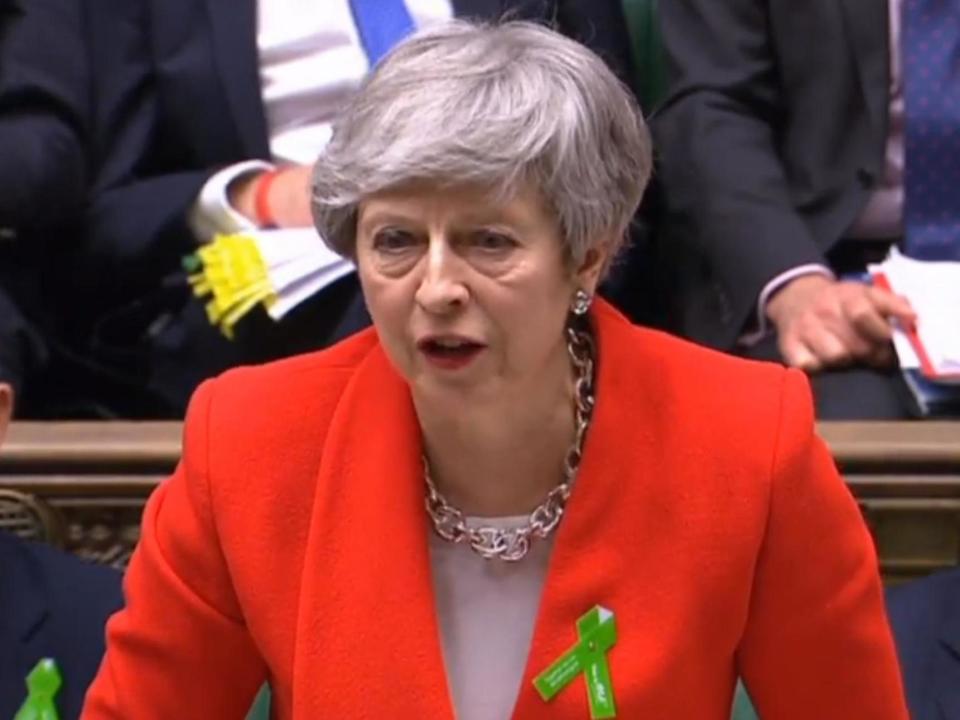How does Theresa May’s plan for a new Commons vote on her Brexit deal affect those hoping to succeed her?
Theresa May announced last night she would be bringing forward the withdrawal agreement bill in the week beginning 3 June.
What this means is that she will probably survive as prime minister for another few weeks. She seems certain to last longer in office than Gordon Brown – she will overtake him on 29 May.
Trying to pass the bill is a way of doing Brexit backwards. The original idea was to hold a vote on a motion to approve the deal – the “meaningful vote” required by law – and then to pass the legislation needed to enact the withdrawal agreement.
Now she’s going to try to get the legislation through parliament first. The plan is to include in it a clause amending the previous law requiring a meaningful vote, so that, if the withdrawal agreement bill is passed, that would mean parliament had approved the deal.
That is not likely to happen; but for May, as long as she is in No 10, there is hope. Nor is it certain that 3 June will be the decisive week. The government has indicated that MPs will vote on the second reading of the bill that week. Despite the terminology, that is the first vote on the principle of the bill.
It would be possible for Labour MPs to abstain on that vote, saying that they would try to amend the bill and then vote for or against it at a later stage depending on how successful they were.
Labour sources are playing down the possibility of abstaining. But, when it comes to it, they may not want to be accused of voting down the prospect of an early exit from the EU. Because, if (or when) the withdrawal agreement bill is defeated, it would mean no chance of Brexit happening before 31 October, when the extension agreed with the EU expires.
So it is possible that May will run out of options that week. Or it may be at some point in the following weeks – the parliamentary term usually runs until about the third week of July. But it is hard to see how she can avoid defeat. The cross-party talks are going on, but Jeremy Corbyn still has scant incentive to try to take us out of the EU and split his party. So at some point in the next nine weeks, most Labour MPs are likely to vote against the bill.
Then Theresa May would probably announce her intention to stand down, and to carry on as prime minister until a successor is elected. When David Cameron did that, he said he expected his successor to take over by the start of the Tory party conference, 14 weeks later. That timetable was then shortened by the party’s board to 11 weeks – before being abandoned abruptly after two and a half weeks when Andrea Leadsom pulled out and May was declared elected.
Assuming the next contest runs its full course, to the same timetable, with rounds of votes among MPs to produce a shortlist of two to be put to party members, the earliest a new leader and prime minister could take office would be the middle of August – a date that would probably be pushed into early September to avoid the holiday period.
If there were a contest then, Boris Johnson would be the most likely winner. He probably has enough support among MPs to make it to the final two, and recent surveys of Tory members suggest he would beat any of his leading rivals.
Then the problems of the new prime minister would begin. Whoever it was would probably have been elected on a promise to negotiate changes to the deal, and to take the UK out without a deal if the EU said no.
But that would be impossible with the present House of Commons, which has proved its determination to prevent a no-deal exit. And time would be tight for a general election before 31 October.
In which case, one of prime minister Johnson’s first acts would be to go to Brussels to ask for a further extension. In that case, Theresa May might get the last – hollow – laugh.

 Yahoo News
Yahoo News 

